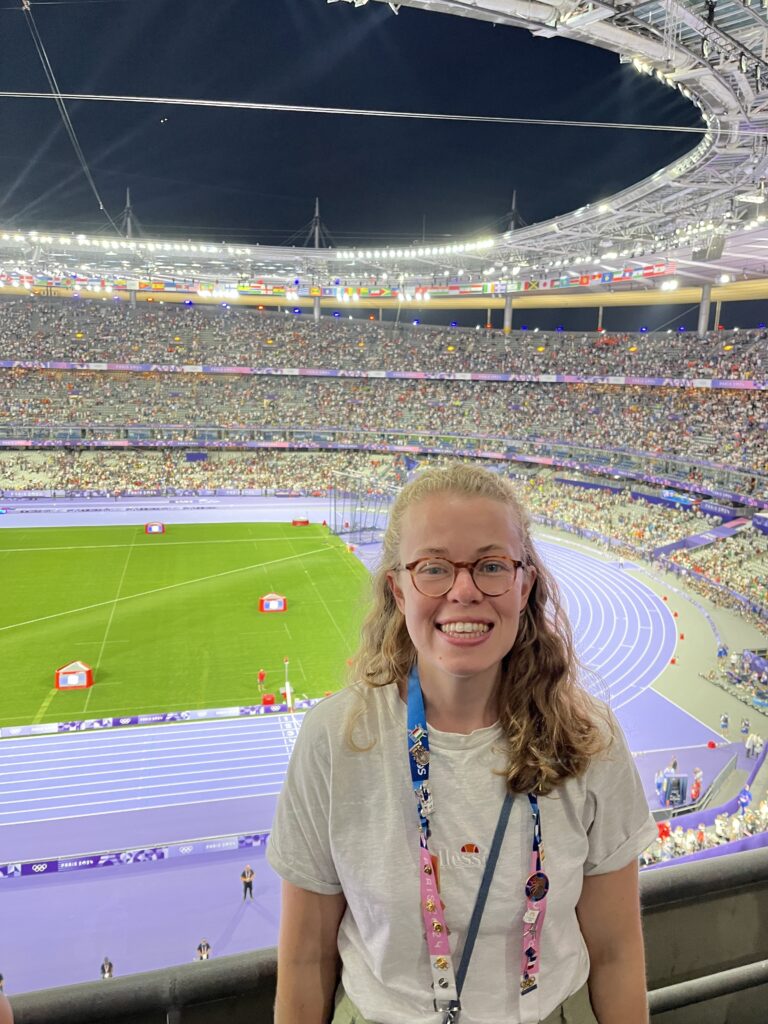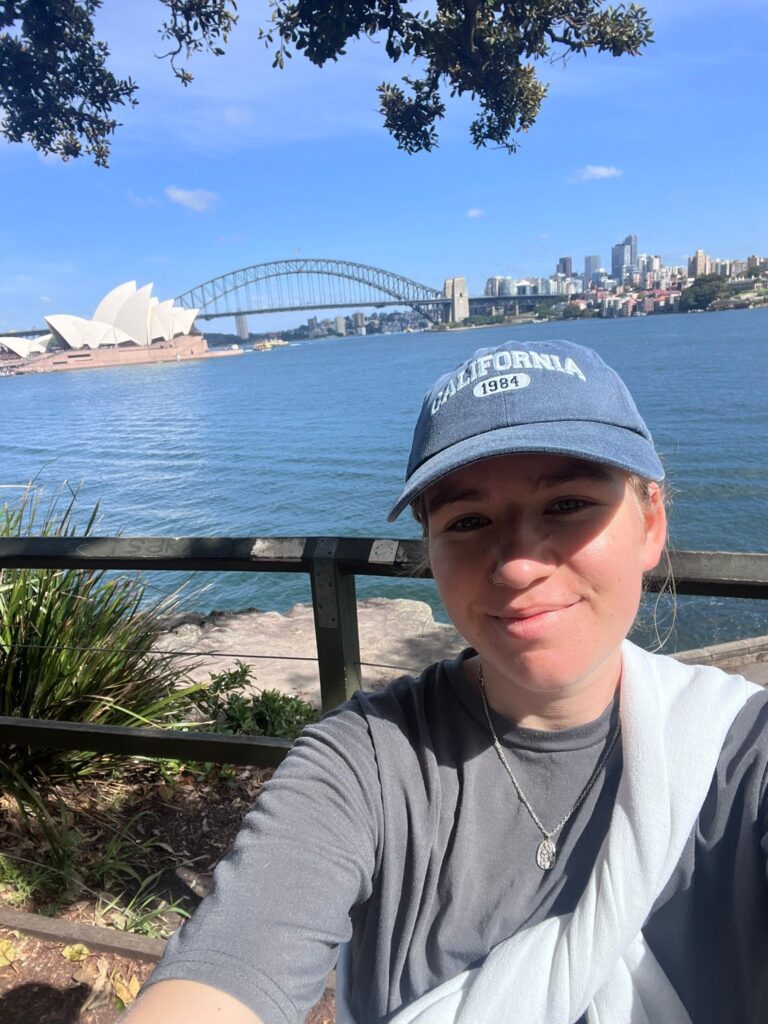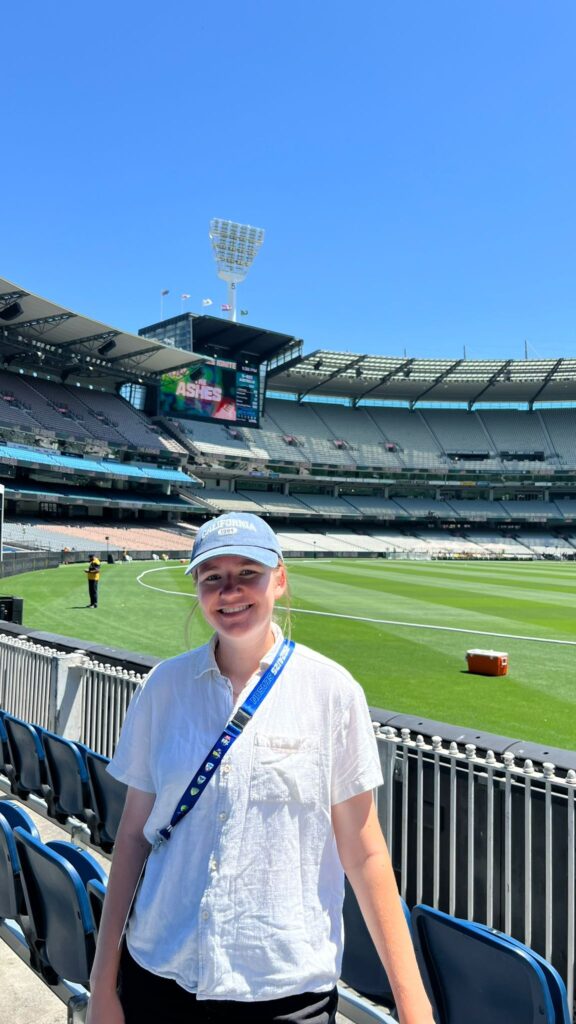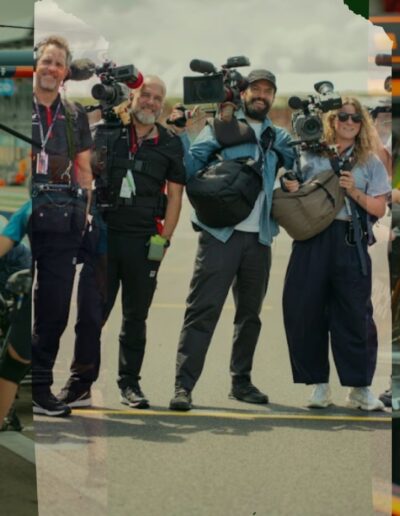Work trips as a sports journalist surely beat most UK corporate away days – but they’re not all glitz and glamour! Sidelines spoke to two professionals whose work covering international events has taken them around the world.
What is a work trip to you? Perhaps the four walls of a meeting room followed by the four walls of a budget hotel, maybe a chance to nip out to look at any local sights before slipping back into the office. For most people it’s not hunting down mosquito repellent for Roy Keane.
“I just remember Volgograd was full of mosquitoes,” admits Sophie Penney, who worked on ITV Sport’s production team during the 2018 men’s football World Cup in Russia.
“I had to go to all these Russian pharmacies to try and figure out what the locals used against mosquitoes so that the pundits could actually do their job, and not be commentating and trying to brush away clouds and clouds of them.”
Penney was part of the team that covered the tournament from Russia and spent weeks living among pundits like Keane, Ian Wright, Ryan Giggs, and Gary Neville (she reflects they could be difficult to keep up with on neighbouring hotel treadmills). As she speaks Russian, part of her job was helping talents navigate the vast country, its stadiums – and the local wildlife. Travelling to cover a sporting event as a journalist, she says, is very different from attending as a fan.

“I think it’s probably more stressful and a bit less glamorous. You get the glamour of the free food and things like that, but you get the not-glamour of the amount of floors I’ve sat on outside stadiums finishing up work.
“When you’re out and about literally anything can happen and you’ve just got to adapt.”
The day that sums that up best is one at the Paris Olympics with Reuters, when her plans – and everyone’s – were thrown into chaos by fires on major train lines on the day of the opening ceremony. Her team rushed to the station for a hectic day of coverage, capturing stories like a family travelling through with their young child sleeping on the station floor. It became a hectic night too.
“As we were wrapping up there, I got rung by my boss and she said, ‘We’ve got an interview with the president of the Paris Olympics. At 1 a.m. In French. Can you go?’
“Bear in mind, I’d started work at 7.”
That’s how Penney’s day ended at the opening ceremony, in the same area as Emmanuel Macron and Thomas Bach, waiting until the small hours to interview Tony Estanguet, head of the organising committee for the Games. Chaotic, but she tells Sidelines it was one of her proudest days.
“That kind of sums it up when you’re out and about because literally anything can happen.”
“It really isn’t as glamorous as everyone thinks,” says Polly Starkie, who took on the ultimate ‘away day’ when she flew to Australia to cover the women’s Ashes at the beginning of 2025. The journalist describes the surreality of flying over the Sydney Opera House as she arrived, but in the same breath tells Sidelines that that moment came after a delayed flight, unexpected layover in Germany, and 36 hours in a hastily rebooked middle seat.
“Luckily I love logistics and I love planning because this trip would be impossible without it. As a freelancer, I was basically the only journalist on the trip who had to organise everything completely themselves.”


Starkie took what she describes as a “huge gamble” in heading out as a freelancer, but ended up reporting for The Telegraph, The Independent, and The Cricketer. Prestigious titles are no protection from travel chaos and eyewateringly late nights, though – she recalls a dodgy Sydney Airbnb she had to cancel last minute (“for my safety and sanity”), and working at the Sydney Cricket Ground until 1am after Australia officially confirmed their series win.
So travelling journalists aren’t always put up in five-star hotels, but putting up with the chaos allows them to witness history.
Starkie reported on the first women’s test since 1949 at the Melbourne Cricket Ground, a stadium she says makes Wembley look ‘tiny’, but a trip highlight came earlier that day. An Afghanistan Women’s XI played an exhibition match at the nearby Junction Oval, their first competitive game since leaving Afghanistan following the Taliban’s return to power – though they couldn’t play as an official national side.
“That was such a special moment. A couple of days before the game, we got to meet the players and chat to them and just hear about a tiny fraction of their story. They’ve been through so much trauma and hardship. I think it really put the Ashes into perspective.
“For me that was a bigger moment even than seeing the first ball at the MCG.”
Travel as a sports journalist might not be glamorous, but it certainly brings its benefits. Just remember on your next away day that long after you’re back at the hotel, other weary travellers are still hard at work telling the story to everyone else!




